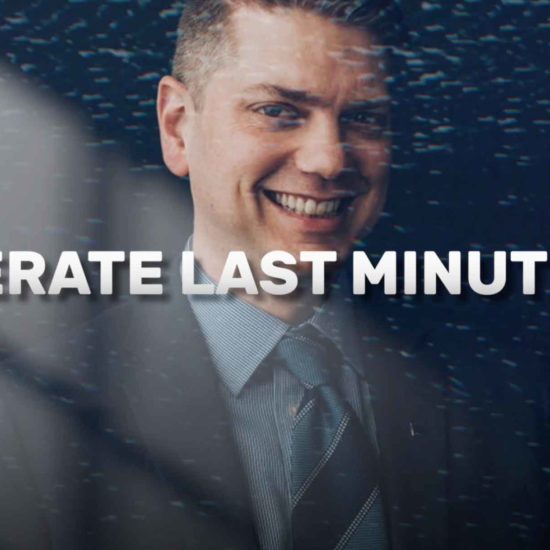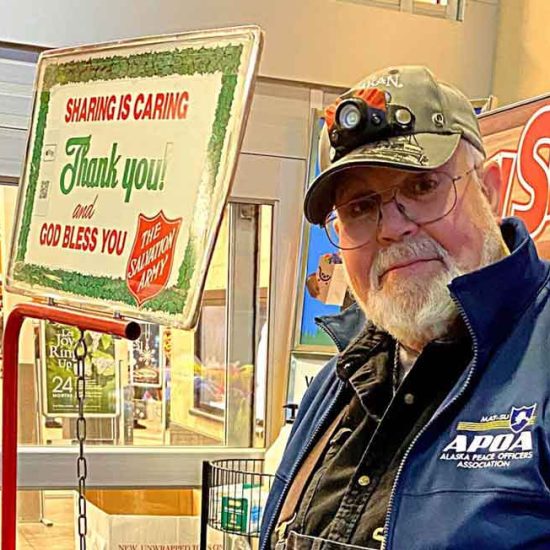By Representative Lora Reinbold – Government’s most important mandate is public safety. Over the last 20 years, government in Alaska made a decision to hold criminal offenders accountable for their crimes by creating meaningful prison sentences, thus crime rates have dropped by 42%. If we still had the same levels of crime as we had in 1995, an additional 15,000 Alaskans would be crime victims every single year. When we look back at that strong record of success, we need to be certain that any changes we make to the criminal justice system will improve the lives and safety of law-abiding Alaskans.
Senate bill 91 is sweeping legislation, perhaps the most significant overhaul of the criminal justice system since statehood. Supporters of SB 91 say that we need to act now. But why? We are in an extended legislative session where we are making important decisions on the budget, income taxes, oil and gas tax policy, and even considering redesigning the permanent fund! Proponents of SB 91 are claiming that the state is facing a crisis with a growing prison population, so we must push this legislation now. However, although the prison population has grown significantly over the past decade, that trend has stopped. The annual prison population has grown by only about 2% over the last five years, and by only three people since 2013. In large part because the Department of Corrections, Department of Law, and the court system have already started finding ways to work within the current framework to divert offenders from prison when appropriate. If we’re going to engage in further reform, we have to take the time to do it right!
Rather than proceeding carefully, with thoughtful consideration of the consequences to the public, SB 91 represents a reckless and irresponsible overhaul of the entire foundation of our criminal justice system. The entire bill is built on a faulty foundation and false premise with strong outside influence from the Pew Charitable Trusts, and heavy lobbying from politically connected interests in Juneau. Alaska’s law enforcement officers and victim advocates see the harm this bill will cause. A letter signed by law enforcement and victims’ advocates from across the state was sent to legislators.- The Anchorage Police Department Employees Association, Alaska Association of Chiefs of Police, Alaska Peace Officers Association, Public Safety Employees Association, Office of Victims’ Rights, and Standing Together Against Rape and others – stated in the letter that it is “unconscionable to jeopardize public safety and exacerbate the trauma crime victims endure in the name of fiscal saving”, noting that “at its very core, this legislation represents bad public policy for crime victims, for law enforcement and for all Alaskans…” Chiefs of police across the state – from Nome to North Pole – have joined the opposition.
Very remarkable is the new treatment of class C felony offenses. Under SB 91, people who commit these crimes – such as vehicle theft, PFD fraud, or stealing a firearm – cannot receive a single day of jail time unless they have a prior felony conviction.
These new lower sentences in SB 91, sadly apply to animal cruelty as well. A person who commits felony-level animal cruelty such as poisoning an animal or causing prolonged and severe pain and suffering – cannot be sentenced to jail! (The current maximum sentence is two years.) A person who commits misdemeanor-level animal cruelty – such as killing a pet through lack of care or engaging in sexual conduct with an animal – will have the maximum sentence reduced from one year to 30 days. (Yes, the sentence for a misdemeanor oddly is higher than the sentence for a felony.)
In fact, sentences will be even lower than they appear on their face. The bill creates a new system of “administrative parole” under which many offenders would automatically be released on parole after serving just one quarter of their sentence. So a person who receives a two year sentence for residential burglary would be automatically released in six months. Also, these criminals get to offset any jail time they do receive, with any time they spent out on bail, in outpatient treatment or while using an ankle monitor – unbelievably even if they “fail out” of treatment or commit another crime while on an ankle monitor. SB 91 also opens up discretionary parole to many sex offenders – including those convicted of sexually abusing children or distributing child pornography.
The bill also effectively legalizes theft, by making it impossible for anyone to receive a day of jail time for theft as long as the amount is under $250 – no matter how many times the person has stolen in the past. This is a declaration of war on Alaska businesses – and the costs will be passed on to customers who choose to obey the law.
The bill’s supporters point to the high rates of recidivism in Alaska once offenders are released. But the answer isn’t to just start releasing them sooner – that does nothing but guarantee that they will start re-victimizing the public at an earlier date.
Unfortunately, the lower sentences that SB 91 creates will actually make it more difficult for offenders who need treatment to get it. The court system has many programs in place to work with defendants on drug, alcohol, or mental health issues. Rather than expand access to these programs, SB 91 undermines them. Treatment programs are rigorous and demanding – because solving the problems that lead to criminal behavior requires a high level of commitment. People go through treatment because they understand that there are serious and unavoidable consequences (jail time) if they don’t. Eliminating those consequences eliminates most of the incentive to seek treatment in the first place.
That’s exactly what we have seen in California. Sweeping criminal justice reform was hailed as the dawn of a new enlightened era by the same interest groups that are pushing SB 91 – from Newt Gingrich, to Pew and the ACLU. The consequences of the reform have been a disaster. “Almost no one has gotten anything close to meaningful drug rehabilitation,” says Los Angeles City Attorney Mike Feuer. “The system is broken at every level.” Is this the example we want to follow in Alaska?
The proponents of SB 91 claim the purpose of the legislation will save money, so they plan on releasing so-called “non-violent” offenders from jail within a few years. They claim they will also reduce the pretrial backlog in our courts, which is often caused because the defendant asks for delays, and put money away for rehabilitation and treatment. But where will these savings come from? Most corrections costs are fixed – salaries for employees and the costs of facilities. Are we expecting DOC to start laying off corrections officers or selling off prisons? How can we, when even the Department of Corrections expects prison populations to begin rising again by 2020? In fact, the bill creates an entirely new agency within the Department of Corrections called “pretrial services” which will be staffed with anywhere from 80 to 125 new employees. We shouldn’t be surprised if we see the same results as Indiana, where corrections spending actually increased following their “reform” efforts.
The rhetoric from supporters claim that the bill will simply refocus efforts away from “non-violent” offenders. Don’t be fooled. The bill lowers sentences for almost every felony and misdemeanor crime. This includes obviously violent offenses like armed robbery, assault with a deadly weapon, manslaughter, or drive-by shootings, as well as crimes like residential burglary or massive embezzlement, fraud, and official misconduct, which may be “non-violent” but which also creates real victims and should be met with real consequences.
Article I, section 12 of the Alaska Constitution provides that the criminal justice system should be designed to promote “the need for protecting the public, community condemnation of the offender, the rights of victims of crimes, restitution from the offender, and the principle of reformation.”
SB 91 endangers the public by returning more criminals to the streets faster; it trivializes serious crimes by reducing or eliminating serious sentences; it denies crime victims the right to be protected by meaningful bail conditions and by forcing them to continue fighting for protection through the parole process; it effectively legalizes theft, raising the cost of doing business and effectively taxing the innocent to benefit criminals; and it abandons those most in need of reformation by removing any incentive to seek help. Danger is lurking in SB 91. What are you going to do to stop it?











